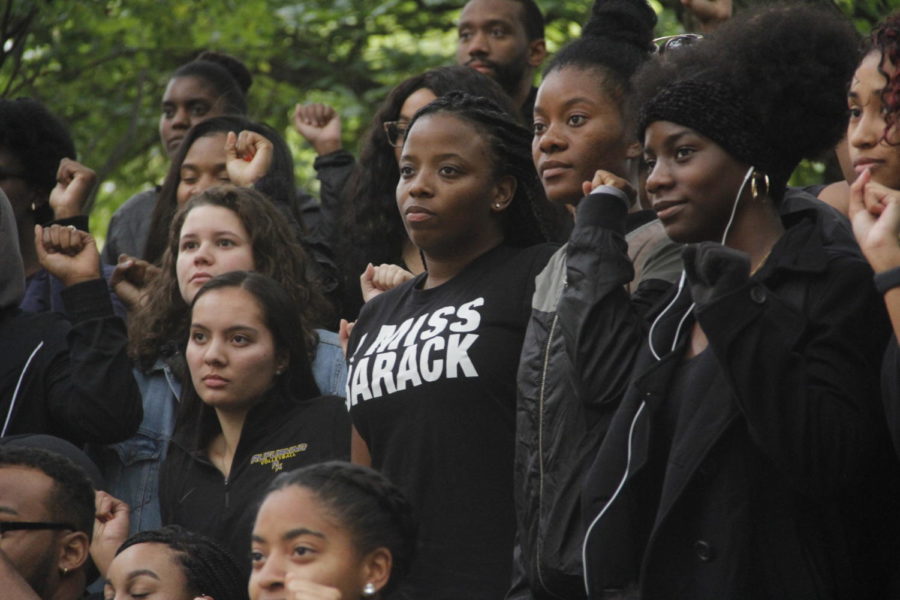Tyrrell: Amplify Black voices in your social media feeds
February 24, 2021
Black History Month has ended, which, rather than actually signifying the end of anything, just means we should be contemplating how to bring the work and self-education of the past month into our lives in a more permanent way.
Speaking from the perspective of a white woman attending school in the heart of the Midwest, one of the most crucial ways I have been able to do this is by intentionally diversifying the media that I consume.
I go to school surrounded by (mostly) white people. My whole extended family is white and so are my closest friends. That means the impetus is on me to seek out Black voices in other spaces, such as the content creators I follow and the shows I watch. I’ll be honest, I didn’t realize how white my online experience was until I was pushed to do so last June. I, like many other white people, consumed Black voices and Black-centered media primarily in the context of discussions of racism. But how ignorant is that? People of color do not exist solely to talk about their experience of not being white or to educate white people on racism. I thought I knew that, but the lack of Black voices I was actually listening to proved otherwise.
So after this shameful revelation, I made it a point to follow a variety of Black influencers and to seek out Black voices in all spheres — entertainment and pop culture, art and politics. Representation doesn’t just matter to little children seeking role models; it matters to all of us seeking a shape for our understanding of the world, an understanding that is sorely uninformed if the only perspectives that create it are white.
Some of the creatives I have been most inspired by are @signedblake, a Chicago-based J.D.-turned-influencer; @kihmberlie, who directs, shoots and models in her own photoshoots; Chloe x Halle, who have become icons seemingly overnight; and Nigerian photojournalist/TikToker, @yagazieemizi. All of these women inspire me not solely because of the additional obstacles they have overcome due to the color of their skin, but because they are inspiring, period. They are talented, creative, powerful and funny. But before this summer, my “For You Page” was all white, and I never would’ve found them.
It’s so important for white people to amplify and center nonwhite voices in our media consumption. To do otherwise is to place ourselves in an echo chamber of our own privileged experience navigating through the world. In honor of leaving Black History Month, take a look at your own social media presence and what type of content creators the algorithm thinks you like. And if that’s only white people… the onus is on you to change that. Instagram and TikTok aren’t going to do it for you.
I said it earlier, but I think it bears repeating: people of color do not exist solely to educate white people about racism. Make sure your social media feed reflects that.







